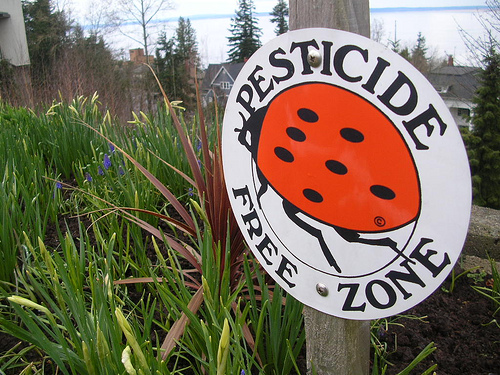Tips for Reducing Pesticide Impacts on Wildlife
Author: admin | Category: Pesticides | Tags: animals, garden, Impacts, insects, pesticide, tips

When they are properly used, pesticides can effectively play a valuable role when controlling insects, weeds, along with other pests as well. However, they can also sort of harm wildlife if one does not properly follow the label directions. Wildlife happens to include non target mammals, birds, aquatic invertebrates, birds, plants, and insect pollinators. Pesticides can usually not be specific when it comes to their actions and could affect the life surrounding the area you plan to us it on. So taking precaution when using it for your personal needs, is crucial if you want to get the job done right. There is a great source of information about gardening, garden insects and animals
Tips for Reducing Pesticide Impacts on Wildlife
It is recommended to use the least persistent and least toxic products to get this job done. To do so, simply look at the toxicity of the products you use and choose the one with the least percentage of toxic. Always read the instructions before using the pesticides because it can really save you time and decrease errors from happening. If you can, also consider to only spray once breeding season has past. Also don’t spray on dens, burrows, or nests. If possible, also stay away from the field edges, ditches, woodlots, wetlands, fencelines, rockpiles, and hedges, as it can harm the habitats living among those areas.
Furthermore, it’s vital that you do not puddle spray during application or even during you clean the equipment. Birds and wildlife tend to hydrate from near puddles and bathe in them, which can really harm their colony. One of the main formulations you should avoid is granular formulations of the extreme toxic insecticides. The soil incorporation of such products are rarely adequate while birds could eat them and get poisoned. Before application of the pesticide, thoroughly inspect the field carefully and avoid repeatedly spraying the product on a single area. In addition to that, also consider using the lowest amount of product that’s recommended for the application and lastly do not apply any of the pesticide in places of water. If you accidentally draw some inside of ponds, lakes, or streams, make sure that you immediately use and anti siphon device, as it will prevent the back flow from happening.
If you feel that you are incapable to get the job done without harming any wildlife, then do consult a professional to help you with the process. The last thing you want is to see innocent animals be left to suffer because of a single mistake you didn’t intentionally make.
23 Aug 2014